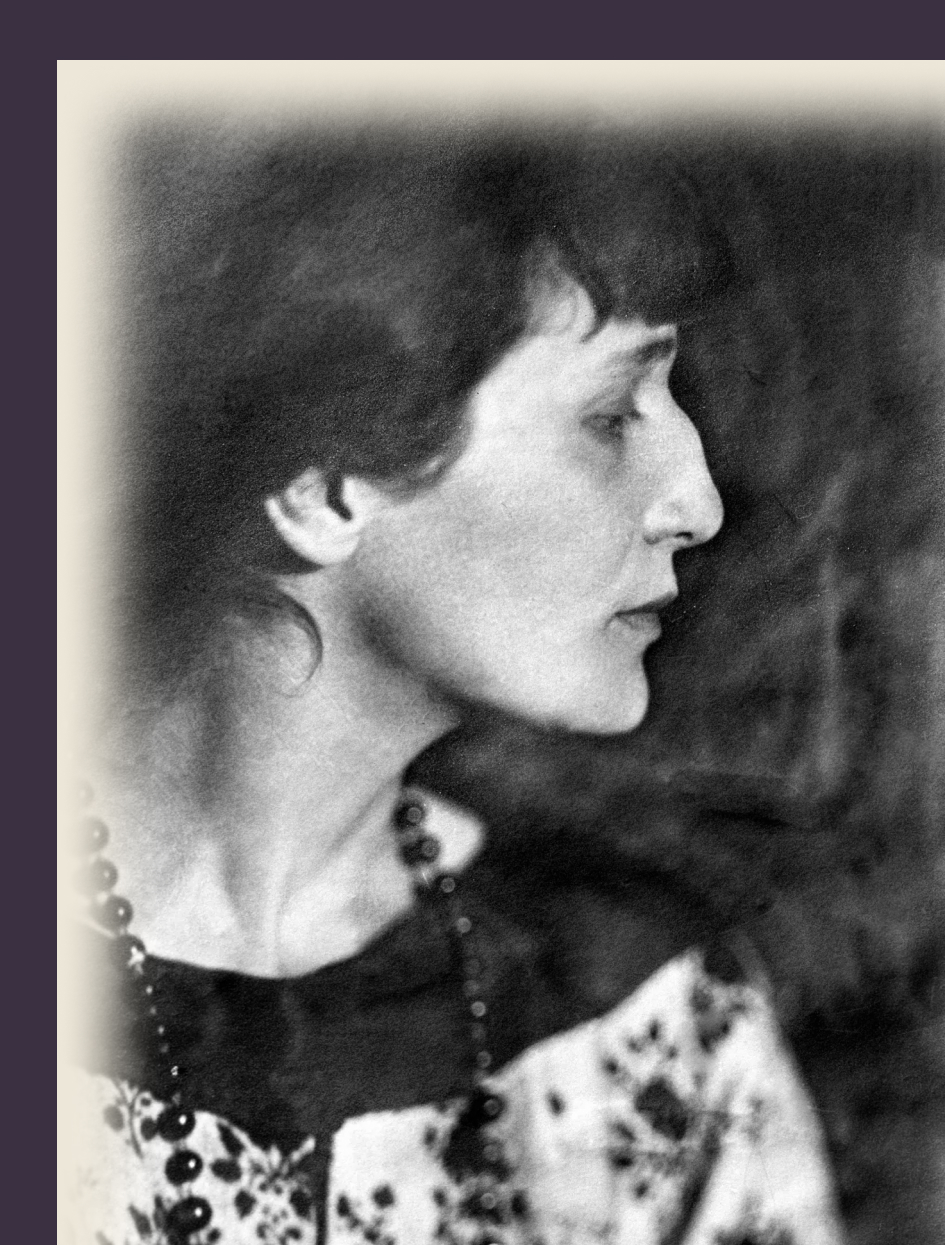
"Not With Those"/ "A voice" — Two poems five years apart, seemingly flowing into each other. 1917–1922. Much happened in those five years: the First World War ended, two revolutions took place, followed by famine and devastation.
“It seems another massacre is brewing,” Akhmatova wrote in August 1917.
“They have made it a habit to spill the blood of fellow citizens on the pavement every month.”
Magazines weren't published, and there were no new books. And there were huge gaps in communication: friends were leaving.
In March 1922, Arthur Lourié, a composer and one of the names of Russian musical futurism, the head of the music department of Narkompros (The People's Commissariat for Education), left. “We remain in hopelessness, in musiclessness, in a spiritually devastated space. We are merely participants in the smoldering coals left from the incinerated Russian culture,” he wrote before his departure.
Five years earlier, in 1917, Akhmatova’s friend, poet and artist Boris Anrep, left for England. It was Anrep who gave her a wooden altar cross he had found in a dilapidated church in Galicia during the war: “To protect her from the torments and charms of the crucifixion,” he wrote in verse. At that moment, she told him: “Crosses are not given; they are passed on.”
In February 1917, they were together at the premiere of Masquerade directed by Vsevolod Meyerhold at the Alexandrinsky Theater, sharing the sense of doom of the existing order, which was so important in the concept of the play. And in the autumn of that same year, Anrep left for England, leaving behind, as he said, this religious and political madness “in search of the peaceful English civilization of reason.”
“You are a defector — for an island green
You gave away your motherland,” Akhmatova wrote, addressing him.
Anrep chose the path of an artist to revive a lost art form — mosaic. The one that thrived during the Roman era and remained a testament to the Roman way of life after the empire's fall. He firmly believed that this genre — monumental, resistant to destruction by time — would tell about the lives of people of the 20th century. And decades later, as a result of enormous work, he achieved significant success in realizing his idea: his works were in churches and public buildings in the UK and Ireland. And the mosaic floor portrait of Anna Akhmatova — Compassion in the cycle The Modern Virtues — has been adorning the vestibule of the London National Gallery since 1952.
And what about Akhmatova? Why did she stay despite the offer to “wash the blood from off her hands, from heart extract the darkest shame”? Why did she not leave her “deaf and defiling” land? Because that was her cross. Her destiny. The mission of a poet.
After the revolution, she published three more poetry collections. The last one was called Anno Domini MCMXXI — In the Year of Our Lord 1921. That year, her first husband, Nikolai Gumilev, was executed on charges of conspiracy against the Soviet government. She seemed prepared for the repressions. Maybe she didn’t expect it all to happen so quickly and so closely affect her. Although back in 1917, when Anrep asked, “What will happen?” she replied: “What happened in France during the Great Revolution will happen, maybe worse.”
Gumilev and his comrades were shot in secret. Their graves were unknown. Secret burials and the disrespect for the memory of the dead — for Akhmatova, it was a sign of the barbarism that had taken over her country. Nevertheless, she stayed in Russia, “with the people / Where my people, to our grief, did stay.” Her son was arrested three times. In 1938, Osip Mandelstam died in a labor camp. His grave was also unknown. Secret burials and unmarked graves were, for Akhmatova, a crime against eternal moral laws.
Everything happening in her country — these were symptoms of the rupture of historical time and the loss of those values without which culture loses its ethical component. She would write “Requiem” as a prayer — in memory of her innocent contemporaries who perished. This was her mission — to bear witness. To remember. To tell. And forty years later, she would write in the poem “Native Soil”:
...But we lay in her and become her flowers,
Thus we freely call her our own — ours.
NINA POPOVA
A voice came to me. It called, beguiling,
It said: "Come hither, do not stay,
Leave your land, deaf and defiling,
Abandon Russia, go away.
I’ll wash the blood from off your hands,
From heart extract the darkest shame,
I’ll cloak with new name’s gentle bands
The pain of loss and bitter blame."
But with indifference, calm and steady,
My ears I sealed with my own palms,
Lest this unworthy speech, so heady,
Corrupt my spirit’s mournful psalms.
1917